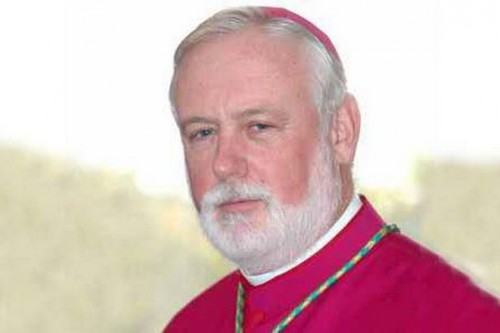
The new Holy See Secretary for Relations with States, Archbishop Paul Gallagher, is well-named. When earlier this week Msgr. Gallagher met the ambassadors accredited to the Holy See, the Deputy Secretary, the Maltese Msgr. Antoine Camilleri, reminded us that the name Gallagher is the anglicisation of the Irish surname Ó Gallchobhair, meaning “foreign help” or “foreign helper”. And in his speech, Archbishop Gallagher was clear that that is how he sees his role as the Holy See’s “Foreign Minister”:
I know almost no one who is unaware that we are living a moment of great significance in human affairs. There are many conflicts and upheavals, and millions of people are suffering to a degree that we would have thought impossible just a few years ago. Perhaps we were too complacent. There are new realities that we struggle to analyse and understand, so we must help each other for the common good. Strengthening bilateral ties, understanding and co-operation, and multilateral efforts through the great international organisations of the twentieth century, so that they are up to the harsh challenges of the twenty first”.
Regrettably, it is rare that you hear diplomats talking of the need to help each other. Too often, international affairs are seen as a zero sum game, and treated as such by too many governments that would rather fail to achieve their maximalist objectives than see rivals prosper. So Archbishop Gallagher’s emphasis, which he described in his speech as “people centred”, was refreshing and bold.
He is, as it happens, the first ever British national to hold such a senior position in the Holy See Secretariat of State. He will work under the Secretary of State, Cardinal Parolin, and will have the duty of delivering a weekly oral briefing to the Pope on international issues. He will be directly accountable for the management of the Holy See’s global diplomatic service (present in some 130 countries) and the Second Section of the Secretariat of State (Foreign Office equivalent), and for providing foreign affairs policy advice.
To this role he brings considerable experience. Born in Liverpool in 1954, he was a priest in Liverpool archdiocese before being selected to join the Pontifical Ecclesiastical Academy (the Holy See’s elite Diplomatic Academy) from which he graduated in 1984. He served in Tanzania, Uruguay, the Philippines, and as Observer to the Council of Europe in Strasbourg, before succeeding the assassinated Archbishop Michael Courtney in Burundi in 2004. In 2009 he was posted to Guatemala, where he was closely involved in the support of the Church for the country’s post-civil war peace process, and in 2012 as Apostolic Nuncio to Australia. It is a background that will serve him in good stead as he takes forward the global vision of Holy See foreign engagement.
I wish Archbishop Gallagher well. The role is demanding and often thankless, and he has far fewer diplomats at his disposal than other foreign services with a truly global footprint. “We must help each other” is a powerful message, and one that as British Ambassador to the Holy See I fully share.
